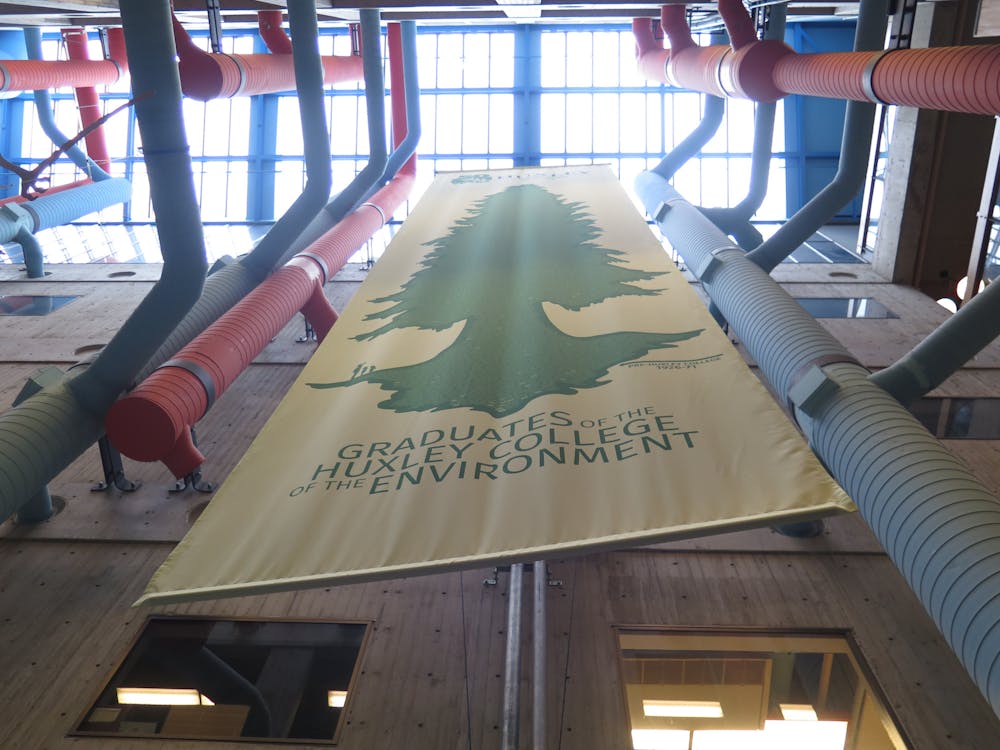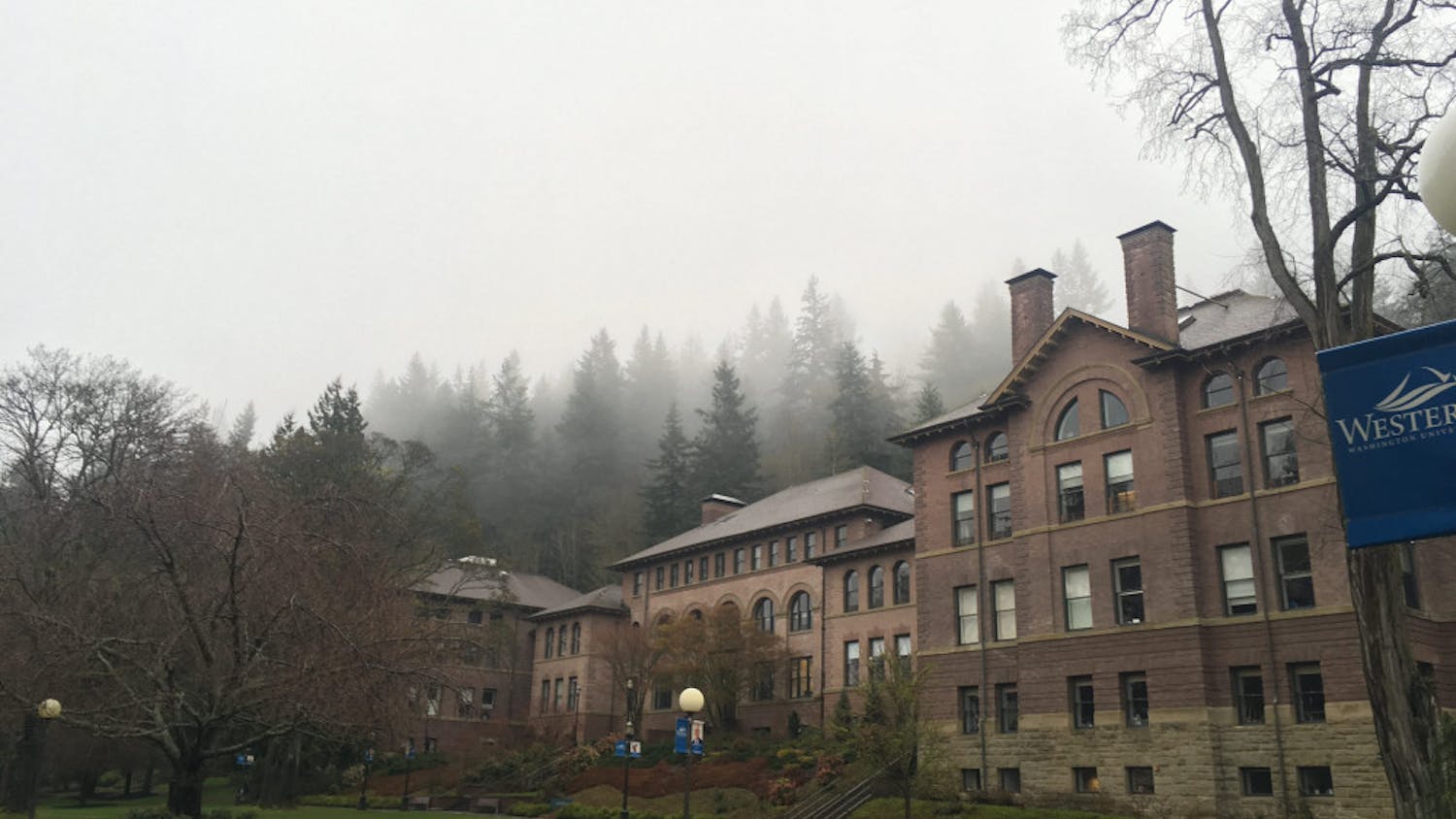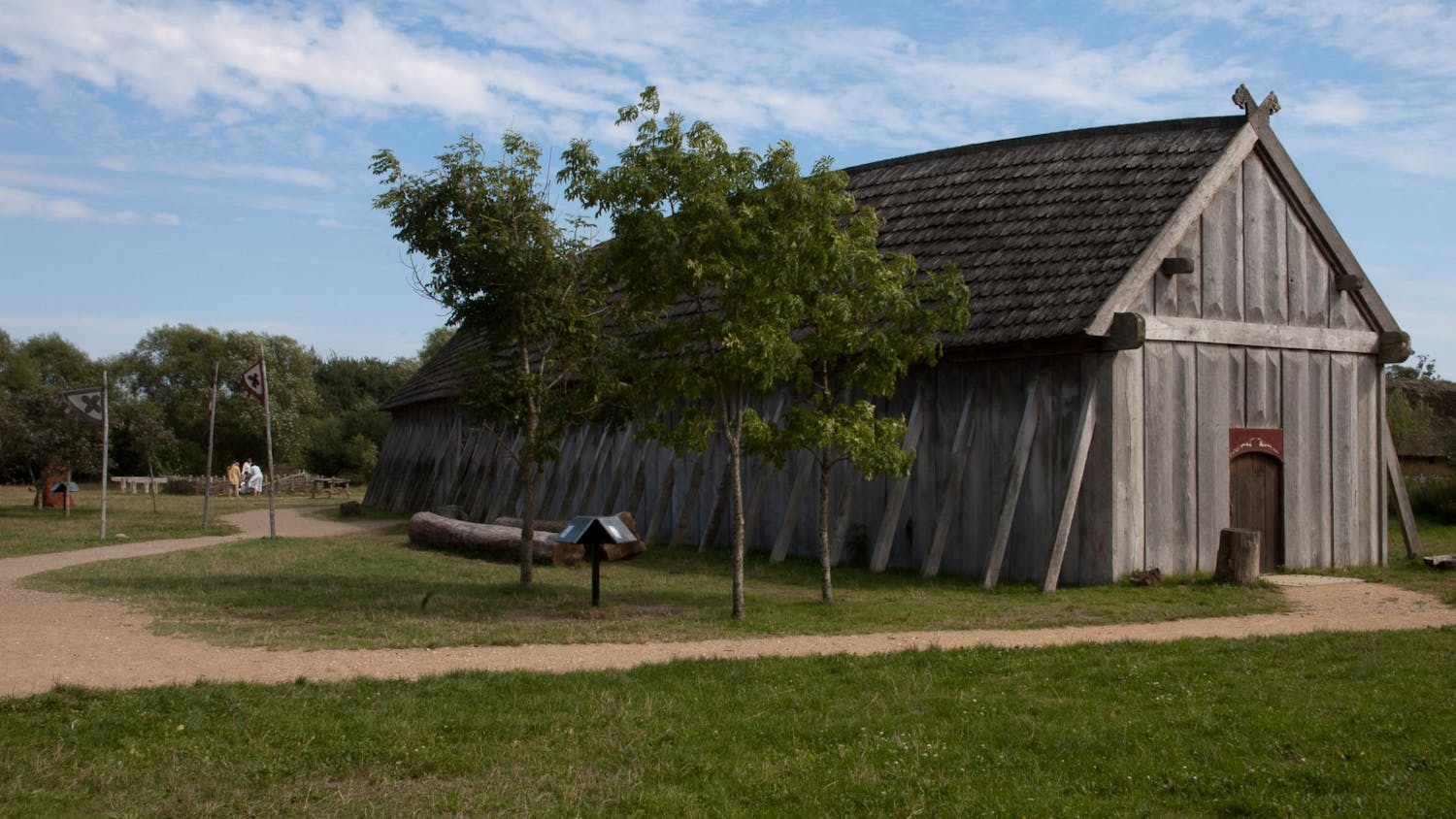Despite the College of the Environment officially losing the ‘Huxley’ title on Dec. 9, 2021, the name change has continued to be a topic of discussion reaching beyond the environmental sciences program.
Students had long criticized Western Washington University for naming the college after Thomas H. Huxley, a 19th-century biologist who became a famous proponent of Darwin’s theory of evolution — but also supported tenets of scientific racism.
Pierce Bock, who recently became one of the two representatives of the College of the Environment in the Associated Student Senate, supports the name change.
“I think it’s really important, and I commend [members of student government] and all the people that helped push it through,” Bock said. “I think the name change was something that had been coming for a while — I’m honestly kind of surprised it took this long.”
The name change process began in the aftermath of the social upheaval related to the murder of George Floyd in May of 2020, which sparked an international movement against systemic racism. Removing the “Huxley” name was specifically listed in a set of demands to the university by the Black Student Organization.
“My one hope is that this is step one in a long process, and the name change isn’t something that’s just symbolic,” Bock said. “I don’t think that we should rest on the name change, because there’s so many systemic changes that BSO is advocating for that I also support.”
The name change was not without controversy, however. Steve Hollenhorst, former dean of the College of the Environment, wrote a Seattle Times op-ed in May of 2021 opposing the change.
The decision has become politicized, according to Vivien Coop, a third-year Urban Planning student.
“Change can be a scary thing to people,” Coop said. “Different generations grow up with different norms. Huxley did contribute towards the environmental movement but granted, there are individuals you can respect that didn’t use the environmental science to support white supremacy.”
Coop works at the Student Engagement Center, where she calls alumni for donations towards student funds. She says some University donors have withdrawn support over the name change.
“An alumni from the College of Business and Economics had consistently donated for five to seven years,” Coop said. “I thought ‘oh, maybe we’ll get a good donation,’ since it was a pretty decent donation that they had consistently been making. I picked up the phone, and when they heard my little spiel, they immediately shut down.”
According to Coop, the donor refused to donate to Western, calling the decision to change the name “woke.” Coop says that while her impression is that the funds being withdrawn in retaliation to the name change is relatively small, she has had multiple conversations with donors opposed to the new name — primarily donors who did not graduate from the College of the Environment, from her experience.
The university has no current plans to change the name beyond simply "College of the Environment," said Paul Dunn, the chief of staff to President Randhawa and Secretary to the Board of Trustees.
“The Board of Trustees’ decision at its December 9, 2021 meeting did not include a directive to initiate a renaming process, just to remove the Huxley name from it," Dunn said in an email.
Despite no official movement, there have been discussions on potential new names for the college. Professor T. Abe Lloyd, who has taught at the College of the Environment since 2012, has one such proposal.
“I think we should adopt a name that represents our bioregion, reflects our environmental mission, is not rooted in colonialism, but is rooted in cross-cultural dialogue and interdisciplinarity,” Lloyd said in an email. “With these principles in mind, I proposed ‘Camas, College of the Environment.’”
According to Lloyd, Camas is a plant native to the Salish Sea bioregion and “an important first food for Salish Peoples.” Lloyd believes that because Camas is a food that has been traditionally managed by Coast Salish peoples, it represents a connection that humans have with the environment.
“Appropriating an Indigenous term can sometimes be problematic, but this is a term that is already part of the English language,” said Lloyd. “The term came to English from the Chinook Jargon, which was a trade language that pre-dated European and American explorers in this area.”
Lloyd added that the name is a juxtaposition to the many human-caused challenges to the environment that students of the college study.
The primary focus of the college right now is the search for a new dean rather than a new name, according to Dunn.
Coop is confident each candidate will represent the college's values. Dr. Sharon Collinge, Dr. Teena Gabrielson, and Dr. Alexis Racelis are the three finalists selected by the Dean of College of the Environment Search Committee, with interviews beginning April 11.
“I think they’re all very incredible candidates,” said Coop. “I would be quite happy with any of them.”
The current dean of the College of the Environment is Jean Melious, whose term expires in September.
- Thanks to Ben Larson for contributing to the reporting of this piece.
Finn Kurtz (they/he) is the Opinion and Outreach Editor of The Front for summer quarter. He is a history and political science double major and a journalism/news editorial minor in their fourth year at Western. In his free time, he enjoys looking in bookstores, going on walks in the woods, and trivia.
They can be reached at finnkurtz.thefront@gmail.com.






